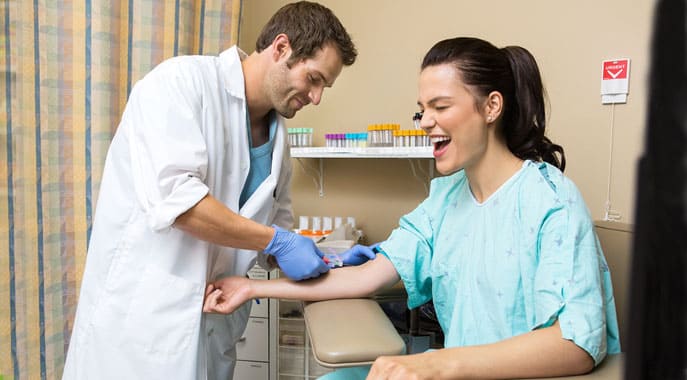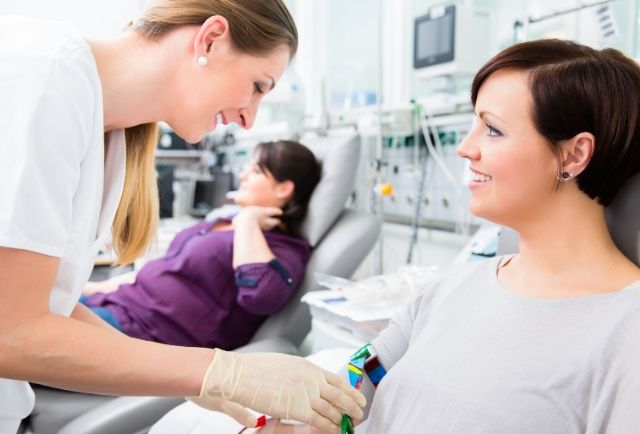Important Aspects to Think About When Choosing one of the most Appropriate Medical Institution Educational Program for You
Choosing one of the most suitable clinical college educational program is an essential decision that can considerably affect your academic journey and future profession path. As aiming doctor, the option of curriculum should align with your individual understanding design and profession ambitions. Nevertheless, beyond these initial considerations, numerous important factors enter into play when making this option. By discovering the subtleties of training approaches, curriculum flexibility, and medical direct exposure possibilities, an extra extensive understanding of what makes a curriculum appropriate for you emerges. Let's discover these critical components that can shape your clinical education and ultimately, your expert trajectory.
Personal Discovering Style

Clinical schools that supply diverse teaching approaches and resources can suit different learning designs, cultivating a vibrant and comprehensive educational setting. Eventually, understanding individual knowing preferences equips students to make enlightened decisions regarding their clinical education, establishing a solid foundation for their future occupations in healthcare.
Job Goals Alignment

Furthermore, straightening job purposes with the clinical college educational program can likewise enhance motivation and interaction throughout the educational journey. When students see the straight relevance of their coursework to their future career, they are more probable to stay specialized and focused to their studies. Therefore, when picking a clinical college educational program, it is crucial to carefully consider how well it lines up with one's profession goals to guarantee an effective and satisfying expert path.
Training Techniques
Taking into consideration the positioning of occupation goals with the selected clinical college educational program, an exam of the training techniques utilized ends up being essential fit the discovering experience. The performance of a clinical institution educational program heavily counts on the mentor techniques utilized by the establishment. Different teaching approaches, such as lectures, little team conversations, problem-based learning, simulation-based training, and hands-on scientific experience, can considerably influence how well trainees maintain and grasp information.
Lectures are a typical but still typically made use of technique for supplying content to a big team of students effectively. Little seminar foster partnership, important reasoning, and communication skills amongst pupils. Problem-based learning encourages active engagement, self-directed understanding, and problem-solving capabilities. Simulation-based training enables students to practice professional abilities in a regulated environment before engaging with genuine people. Hands-on scientific experience supplies a direct understanding of person treatment and clinical techniques.
When selecting a medical college curriculum, aspiring pupils must think about the teaching methodologies used to make sure that their learning choices and staminas align with the academic approach of the establishment.
Curriculum Flexibility
When reviewing medical school programs, examining the extent of educational program versatility is important for possible trainees looking for a tailored instructional experience. Educational program flexibility describes the degree to which pupils official site can individualize their knowing courses within the medical college curriculum. An educational program that uses flexibility permits trainees to seek their interests, concentrate on areas where they need extra support, and involve in learning experiences that line up with their career objectives.

Possible medical pupils should think about just how a medical school's curriculum adaptability aligns with their discovering choices, profession desires, and personal objectives. By choosing a program that provides the appropriate balance of framework and versatility, students can enhance their educational experience and prepare themselves for successful jobs in medication.
Medical Exposure Opportunities
Exploring the useful application of medical knowledge, clinical exposure opportunities play a crucial role in forming a comprehensive clinical education and learning. These possibilities give pupils with invaluable hands-on experience in real healthcare setups, permitting them to link the void in between theory and practice. When considering clinical college educational program, the top quality and amount of professional exposure should be carefully assessed.
Reliable clinical direct exposure must provide a diverse variety of experiences across numerous specializeds, making sure that trainees are exposed to different medical scenarios and person demographics. Exposure to outpatient facilities, inpatient wards, medical theaters, and emergency departments can assist students establish a well-shaped understanding of various facets of medical care delivery. Furthermore, possibilities for community-based care and communications with underserved populaces can foster a deeper appreciation for the social factors of wellness.
Furthermore, the existence of encouraging professors and mentors during these scientific experiences can significantly improve the understanding procedure. Faculty support and useful comments can aid students review their scientific experiences, identify areas for improvement, and improve their decision-making abilities and medical abilities (Northeast Medical Institute CNA Classes Near me Stamford). Generally, durable clinical exposure possibilities are vital for preparing future medical professionals to More Bonuses supply quality client treatment properly
Conclusion
Finally, when choosing a clinical college educational program, it is vital to consider your individual learning design, placement with profession goals, teaching methodologies, educational program adaptability, and scientific direct exposure opportunities. These aspects play an important duty in identifying the most appropriate program for your academic and specialist growth. Make certain to thoroughly evaluate each facet to make a notified choice that will certainly best support your growth in the medical field.
Comprehending one's individual understanding style is important when choosing a medical institution curriculum. By identifying one's learning style early on, aiming clinical pupils can tactically select a curriculum that caters to their strengths, inevitably boosting their discovering experience and scholastic success.
When assessing why not try this out medical school programs, assessing the level of educational program versatility is important for prospective pupils seeking a tailored educational experience. Educational program versatility refers to the degree to which students can customize their discovering paths within the clinical school educational program.In final thought, when selecting a clinical college curriculum, it is important to consider your individual discovering style, placement with profession purposes, showing approaches, educational program versatility, and clinical direct exposure chances.